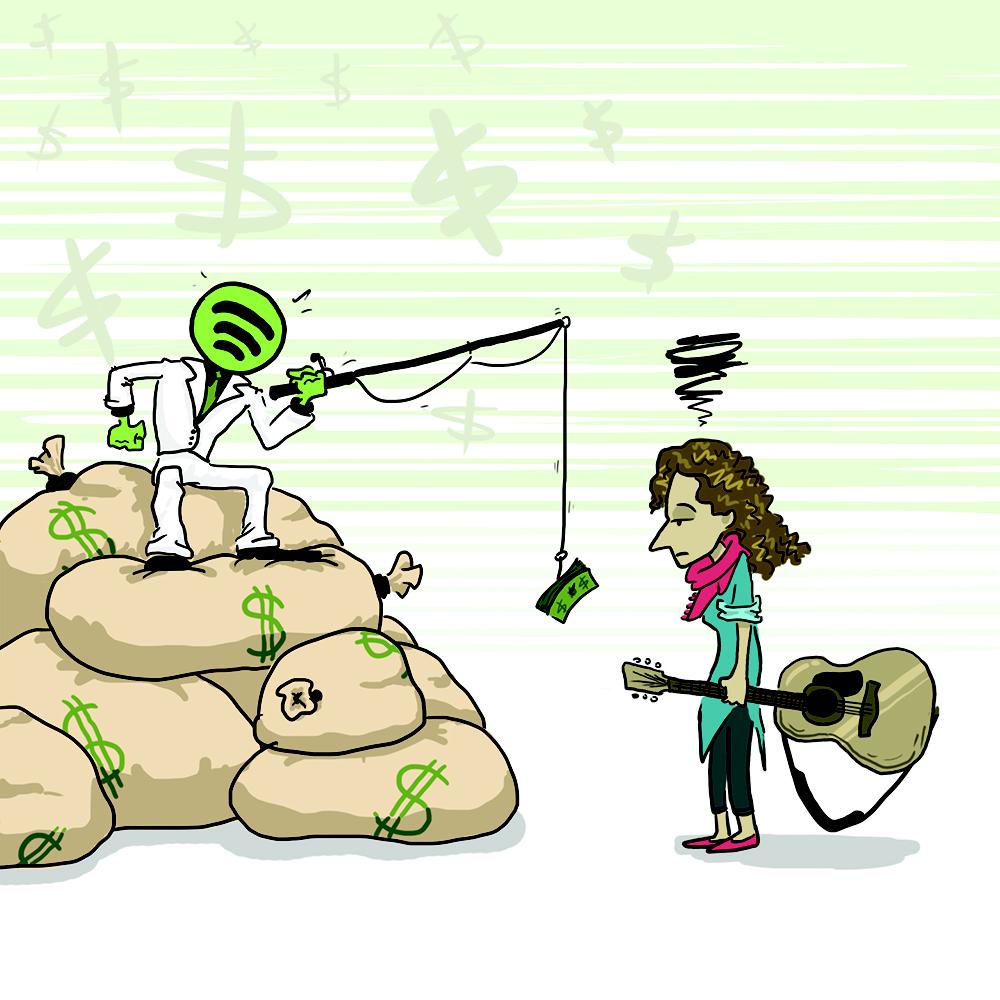On the night of this year’s Grammy Awards, Neil Portnow, president of the Recording Academy interrupted the barrage of music performances and awards to give a speech about an arising issue in music: artist advocacy. During the speech, Portnow talked about music streaming services are not paying artists fairly for their work. This idea of unequal pay remains true, but the issue lies in the users not caring.
A COMPLEX MATTER
The concept of music subscription services seems pretty fair on the forefront. Users pay a fee every month — excluding Spotify’s free service — and get unlimited access to a massive song bank to listen to what they choose. For every stream of a song, the artists receive a small fee. Unfortunately, streaming services do not pay the artists enough and tend to allot royalties unequally.
The matter is complex because these streaming services complicate the process on purpose to make the user, and in some cases the artists, not care. For example, Spotify’s artist payout model looks like a formula learned in a math course rather than in music business.
According to the same page, artists are also paid based on their popularity. The biggest artists are only paid up to .0084 of one cent per stream. It hurts smaller artists more because they can receive pay as low as .0006 of one cent per stream. On both ends of the spectrum, though, most of the money these artists make goes to their label, as shown in Spotify’s model.
THE BIGGEST CULPRIT
Spotify is the biggest culprit of all streaming services because of its free service. When the company is not profiting from users paying the premium rate, they decrease the amount of royalties given to the artist to compensate for the loss. In some cases, the royalty rate of the free service can be 11 times less than the royalty rate of Spotify Premium.
On a macro scale, streaming also hurts the music sales industry as well. CD sales declined by 31 percent in the U.S. in 2015, and digital downloads declined by 20 percent in the second half of 2015 alone. Streaming causes this because people pay streaming companies to listen to music rather than the label and artist directly. The business model Spotify and others have created favor themselves, rather than the artists and the industry.
AN ETHICAL ISSUE
Taylor Swift was right in only letting Apple Music “1989” after she negotiated equal pay for smaller artists. Adele is right in not letting streaming services have access to “25.” The greater issue in this business model is that the user does not see any of this as a problem that needs to be fixed.
The common user does not recognize that people make a living off entertainment. It is an ethical issue that cannot be overlooked. Streaming seems attractive now, but it will stop aiding the music industry when companies can no longer support the creative process found in artists due to a lack of funds. Those funds lie within companies who do not even produce music.
To support artist advocacy, tell your members of Congress to support the Fair Play Fair Pay Act at http://actnow.io/cjIAc5y







